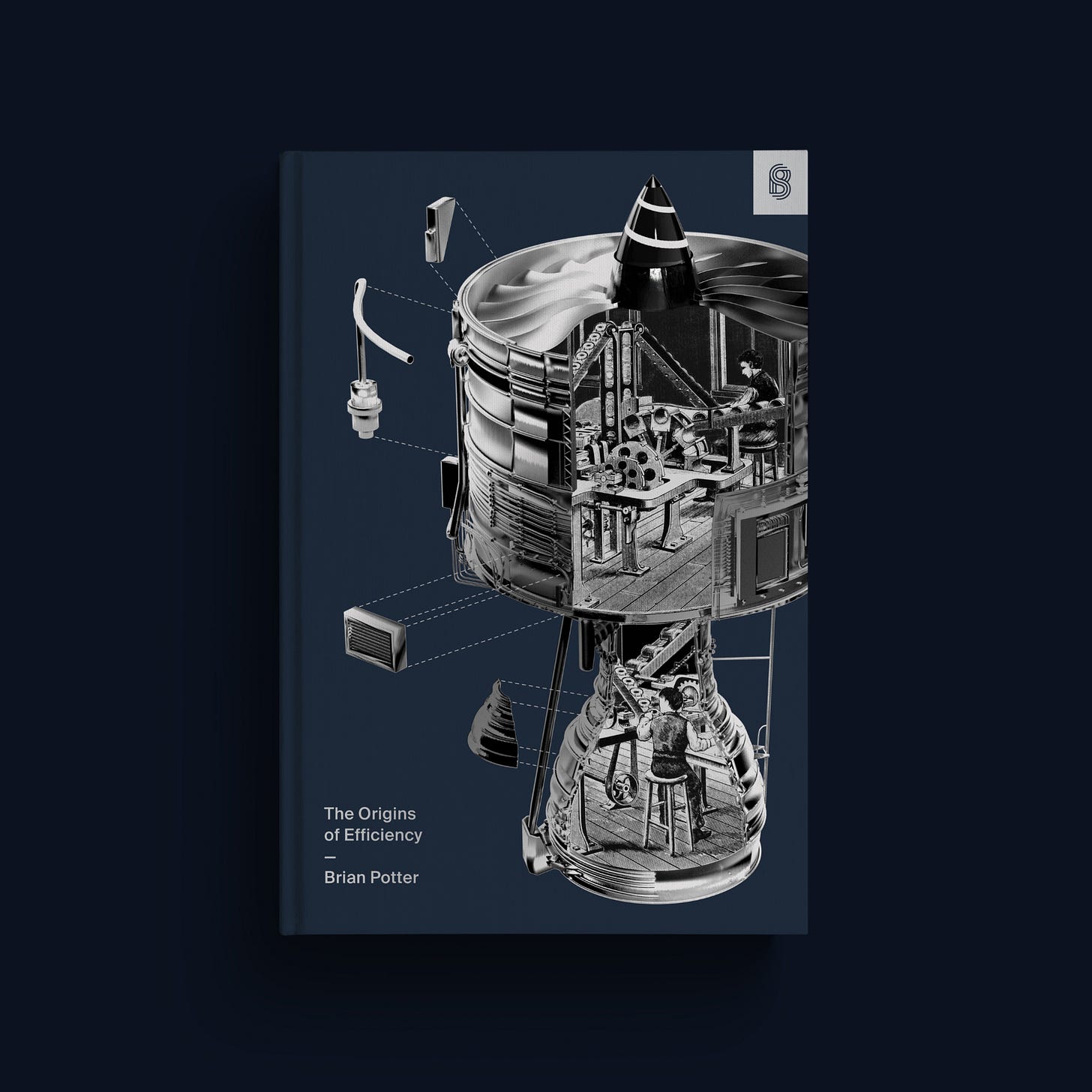Preorder The Origins of Efficiency by Brian Potter
How production processes—from penicillin to steel to semiconductors—get more efficient over time, and why it matters.
We know the stories of how Alexander Fleming discovered penicillin, or how Thomas Edison perfected the light bulb. But these stories are often incomplete, Brian Potter argues in The Origins of Efficiency, available for preorder now.
For all the attention the initial discoveries get, it was the ability to scale these inventions—to produce them quickly and reliably, in massive quantities, at low cost—that made their impact so transformative.
In the decade after penicillin was first discovered, scientists could only produce enough of it to keep a single person alive for a year. When mass production of penicillin became possible, it became the “miracle drug” that eliminated up to 80 percent of battlefield deaths during WWII.
Similarly, it took over 100 years of incremental innovations for electric light bulbs to become cheap, ubiquitous, and so easy to produce that by the 1980s, fewer than 15 machines were needed to manufacture the world’s entire supply of glass bulbs.
Drawing on nearly a century’s worth of research into production efficiency, Brian explains the fundamental steps of a production process and how each can be made faster, cheaper, and more reliable. He includes detailed examples from a range of industries: steel and semiconductors, wind turbines and container shipping, Tesla and the Model T, and more. He concludes with a discussion of how these same principles might be applied to domains like housing, medicine, and education, where access and affordability appear increasingly out of reach.
The Origins of Efficiency makes a powerful case for production efficiency as an underrated driver of progress. And it helps to answer some of the most pressing questions of our time, from why housing costs in the US continue to skyrocket to whether it will be possible to power our homes with affordable nuclear energy. Efficiency, he argues, is of civilizational importance.
Happy reading,
Rebecca Hiscott, Managing Editor
Tammy Winter, Commissioning Editor


